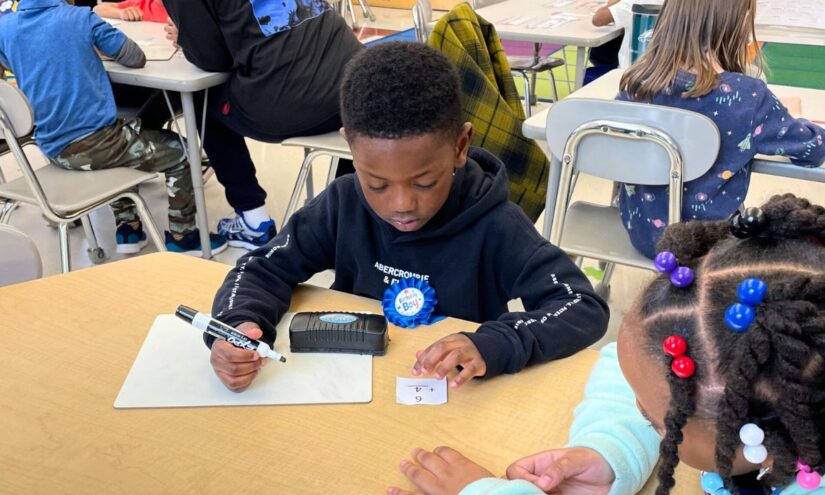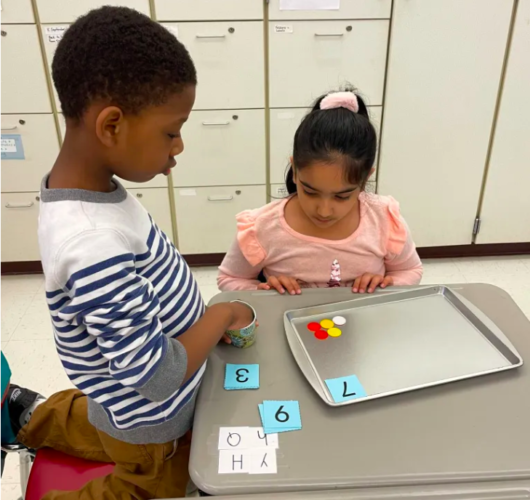During this summer, a team of students from MIT embarked on a journey to the sou …
The Problem with Overly Basic Kindergarten Math
Jennifer Livingstone

In the kindergarten classroom of Jodie Murphy, math lessons extend beyond basic number recognition and counting.
Students in a recent session engaged in a counting activity involving plastic red and yellow dots. One student threw the dots onto a cookie sheet while another closed her eyes. When the second student opened her eyes, she counted the dots and matched the number with a corresponding card.
The plastic dots reappeared in a more challenging exercise as well. Murphy initiated a two-minute exercise where students had to count dot arrays and adjust the number of dots to match a given written number. For instance, when presented with four dots beside the number 6, students needed to draw two more dots as a precursor to learning addition.
Experts and researchers emphasize that kindergarten serves as a critical foundation for comprehending the relationship between numbers and quantity, aiding in the development of number sense among children.
However, many kindergarteners are stuck revisiting basic concepts they already know, according to research. While mastering fundamental math content is vital for those starting with limited math knowledge, a growing body of research suggests that broadening kindergarten math instruction beyond counting could enhance future math success.
Addressing these issues, the Chichester School District has implemented the SpringMath program district-wide to bolster math achievement. Kindergarteners now receive an additional 30 minutes of math daily, focusing on foundational skills like number understanding, quantity, and basic addition and subtraction.

This intervention, alongside initiatives like hiring a math specialist for each school, has significantly boosted students’ math proficiency in the district. The percentage of proficient students has more than doubled across grades, with fourth graders showing 47% proficiency in math on the state assessment.
Kindergarten teacher Murphy noted that while some students arrive with prior counting abilities, others have limited or no understanding of numbers. The interventions have accelerated all students’ progress in complex tasks, such as counting up or down from different starting points and performing basic addition and subtraction operations.
“Kindergarten is a crucial step in building students’ academic foundation, especially in math,” said University of Oregon researcher Ben Clarke. The early years are pivotal for developing number competence, which is a strong predictor of future math achievement.

Kindergarten math education often focuses on basic concepts like counting and shapes, potentially missing opportunities to introduce advanced mathematical content. Research by Mimi Engel reveals that students exposed to advanced math concepts early on tend to excel in later grades. Although repetition is essential, it must remain engaging and informative, fostering deeper mathematical understanding.
VanDerHeyden stresses that breaking numbers down and grasping their relationships enriches kindergarteners’ mathematical cognition more than mere counting. By transitioning from concrete objects to abstract numerical representations, students can better comprehend mathematical concepts.
To enhance math skills, schools are revamping their curricula to progressively build students’ mathematical abilities. The Eureka Math curriculum, adopted by Lang’s classroom, guides students to represent objects symbolically before interpreting abstract quantities.


